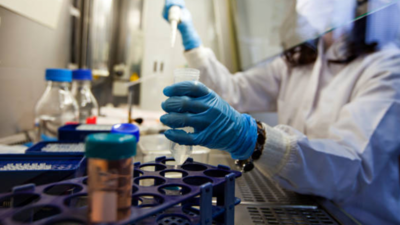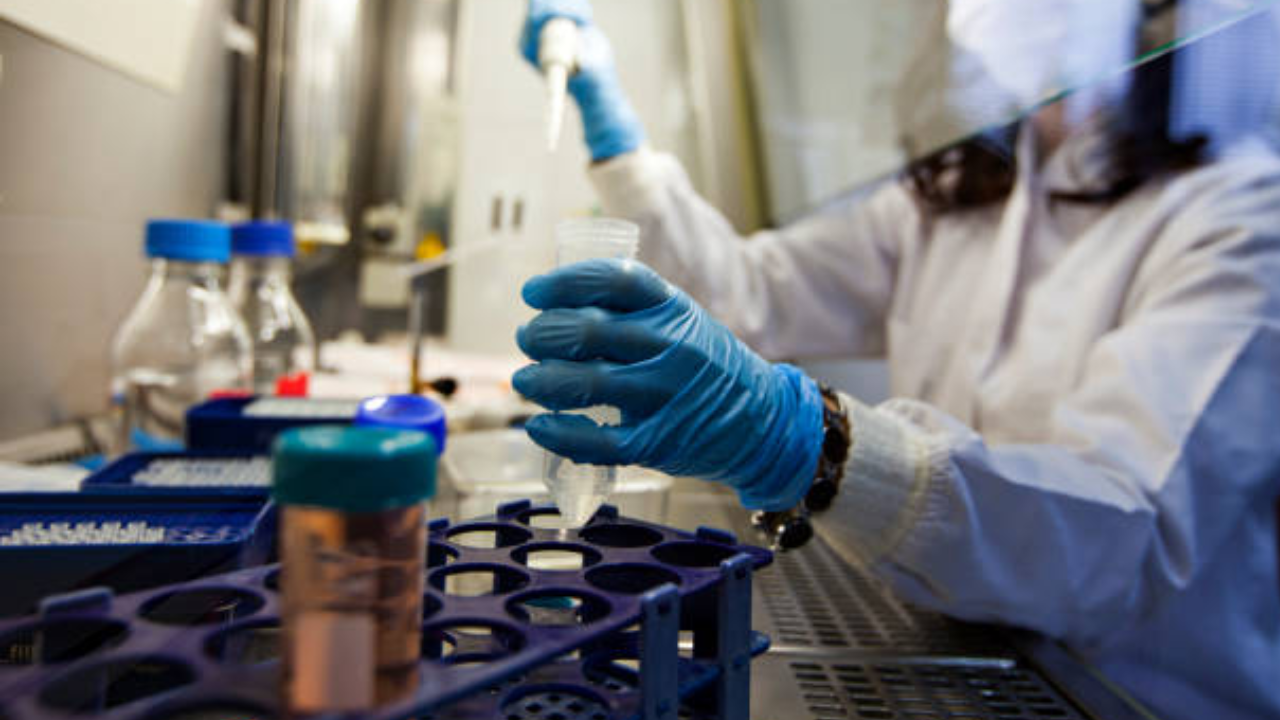With advancements in research occurring daily, cancer is no longer the dire diagnosis it once was. Many cancers can now be treated and effectively managed if detected early, and ongoing studies are continuously unveiling new treatment opportunities. Hospitals in India are equipped with state-of-the-art technology and are keeping pace with global standards.
To gain insights into treatment options available internationally and strategies for defeating the disease, we spoke with Dr. William P. Tew, MD, Gynecologic Medical Oncologist at Memorial Sloan Kettering Cancer Center (MSK), New York. Dr. William who also happened to be the treating physician of actor Sonali Bendre when she was diagnosed with cancer shared valuable perspectives on how the right treatment approach, adopted by skilled medical professionals, can make a significant difference in patient outcomes. Here are excerpts from the interview:
What is the difference between treating cancer patients in India and abroad?
We have observed different cultural attitudes toward treatment. In India, a communal approach can foster a collaborative atmosphere in treatment planning, while Western healthcare systems tend to emphasize patient autonomy, encouraging individuals to take an active role in their care. Both approaches have their merits, with Indian patients often experiencing deep familial support and American patients benefiting from a structured environment that facilitates independence in healthcare decisions. Furthermore, the integration of innovative therapies, such as immunotherapy and targeted treatments, is a global priority. Both regions invest in research and development to improve patient outcomes, showcasing a commitment to advancing cancer care. Ultimately, while the experiences of cancer patients may differ between India and abroad, each region offers unique strengths that contribute to the overall landscape of
cancer treatment
.
What was done differently in Sonali Bendre’s case that positively impacted her health?
Sonali received standard treatment including surgery and chemotherapy by an experienced multidisciplinary team at MSK. Her team at MSK were instrumental in providing her excellent care. However, all the credit goes to Sonali and her family. Her resilience and positive attitude were key to completing all of her treatment. In addition, we were able to partner with her medical team in India to provide surveillance and ensure that she remained in remission. Lastly, MSK IMPACT, a targeted tumour-sequencing test that can detect mutations and other critical changes in the genes of both rare and common cancers, helped better classify her cancer type and tailor her treatment.
What are some new treatment options available now?
The landscape of cancer treatment is rapidly evolving, particularly with the advent of groundbreaking immunotherapy options. At Memorial Sloan Kettering Cancer Center (MSK), we have been at the forefront of this transformative approach for over a century, leveraging the body’s immune system to effectively combat cancer. One of the most significant advancements has been the introduction of checkpoint inhibitors, which ‘release the brakes’ on the immune system, enabling it to more effectively target and destroy cancer cells. These therapies have been game-changers for advanced cancers, including cervical, endometrial, melanoma, lung, bladder, and kidney cancers.
Another innovative treatment we’re working on is CAR T cell therapy. This involves taking a patient’s immune cells, modifying them to better recognize and attack cancer, and then reintroducing them into the body. It’s been particularly effective against leukemia and is now being explored for other cancers as well.
Moreover, MSK is a leader in bone marrow transplantation, an essential approach for treating blood cancers such as leukaemia. Our comprehensive approach combines cutting-edge scientific research with close collaboration among our medical professionals, allowing us to continuously develop new therapies. Presently, we are conducting nearly 100 clinical trials focused on immunotherapy, dedicated to discovering even more ways to harness the immune system in our battle against cancer. It is indeed an exciting era in cancer treatment, and we remain optimistic about the advancements ahead.
How early screening is important in cancer detection and treatment
What are the most easily treatable cancers?
When discussing easily treatable cancers, it’s important to recognize that “easily treatable” can depend on various factors such as early detection, cancer type, and its location. Generally, cancers that are diagnosed at an early stage tend to have better treatment outcomes. For instance, early-stage breast cancer can be effectively managed through a combination of surgery, radiation, or hormone therapy. Similarly, papillary thyroid cancer, known for its slow growth, often has a high cure rate when treated with surgery to remove the thyroid gland. Skin cancers like basal cell carcinoma and squamous cell carcinoma can typically be treated successfully through surgical excision or localized therapies like freezing or topical medications. Additionally, cervical cancer, when detected early through regular screenings like Pap smears, can be effectively treated with surgery or radiation therapy. Testicular cancer also presents a high cure rate when diagnosed early, usually involving the surgical removal of the affected testicle, sometimes followed by chemotherapy or radiation. Lastly, early-stage prostate cancer can often be effectively managed through active surveillance, surgery, or radiation therapy.
While every cancer case is unique, these types generally show promising treatment outcomes when detected early, highlighting the importance of regular check-ups and screenings to improve success rates in cancer treatment.
What is the holistic approach adopted by your team?
At MSK, our approach is to care for the person, not just the disease. We integrate complementary therapies such as acupuncture, massage, and yoga into our patients’ overall care plans. These holistic health services are grounded in the latest scientific evidence to ensure they are safe and effective.
Our Integrative Medicine program offers a membership program that provides patients with access to various holistic therapies designed to boost overall well-being, reduce pain, and minimize anxiety, depression, and stress. Members can enjoy a range of specialized programs, including wellness classes, workshops, and personalized consultations. This support helps patients manage cancer symptoms and treatment side effects by offering tailored advice and resources. We also provide guidance on dietary supplements, manage lymphedema, and address fatigue, neuropathy, and other symptoms. Our goal is to improve muscle strength, balance, and endurance while helping patients control their breath and reduce muscle tension.
We believe in empowering our patients to actively participate in their care. Whether you’re newly diagnosed or a longtime survivor, our Integrative Medicine program offers options to help you manage your health and well-being. By combining proven integrative therapies with a healthy lifestyle, we aim to help you navigate the road ahead and start seeing and feeling results as soon as possible.
Can cancer be prevented?
While we can’t prevent all cancers, there are significant steps individuals can take to lower their risk. Lifestyle choices play a crucial role in cancer prevention. Many lifestyle choices and preventive measures can make a big difference. For instance, avoiding tobacco in all its forms is one of the most effective ways to prevent many types of cancer, including lung, mouth, throat, and pancreatic cancers. Additionally, maintaining a healthy diet rich in fruits, vegetables, and whole grains, while minimizing processed foods and red meats, can make a substantial difference. Regular physical activity is also essential for maintaining a healthy weight, as obesity is linked to several types of cancer. Limiting alcohol consumption is important too, since excessive drinking is associated with an increased risk of breast, liver, and oesophageal cancers.
Sonali Bendre: Cancer treatment is more painful than disease
Moreover, protecting your skin from the sun using sunscreen and protective clothing is vital for reducing the risk of skin cancer. Vaccinations play a significant role too. For example, the HPV vaccine can prevent cervical and other types of cancer caused by the human papillomavirus. Similarly, the hepatitis B vaccine can lower the risk of liver cancer. Finally, regular screenings and medical check-ups are crucial, as they can detect cancers early when they are most treatable. Screenings like mammograms, Pap smears, and colonoscopies have been shown to save lives by identifying cancers in their early stages.
So, while we cannot eliminate cancer risk entirely, adopting these healthy habits and preventive measures can significantly reduce the likelihood of developing cancer. It’s all about making informed choices and staying proactive about our health.
I’m Manas Ranjan Sahoo: Founder of “Webtirety Software”. I’m a Full-time Software Professional and an aspiring entrepreneur, dedicated to growing this platform as large as possible. I love to Write Blogs on Software, Mobile applications, Web Technology, eCommerce, SEO, and about My experience with Life.







